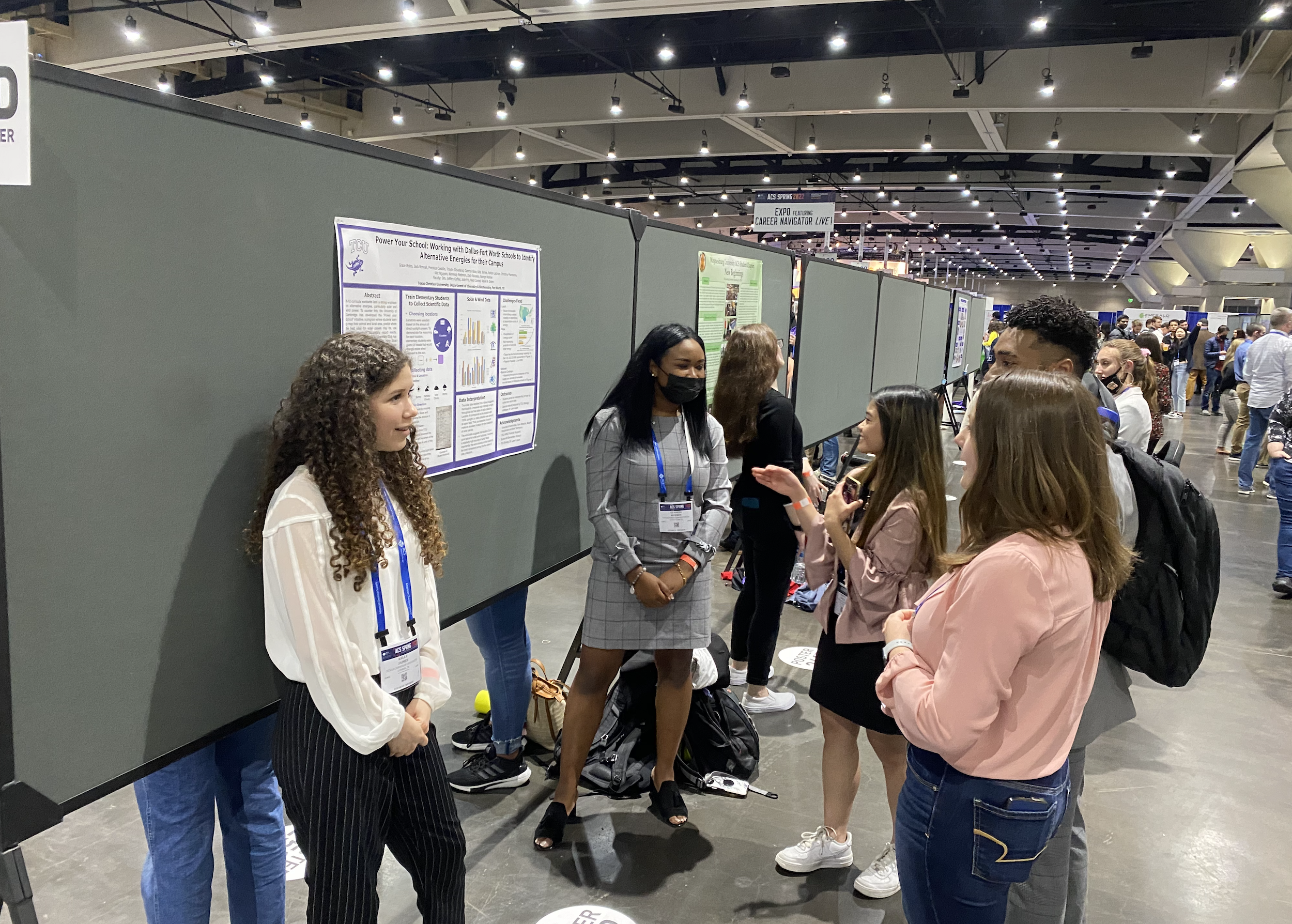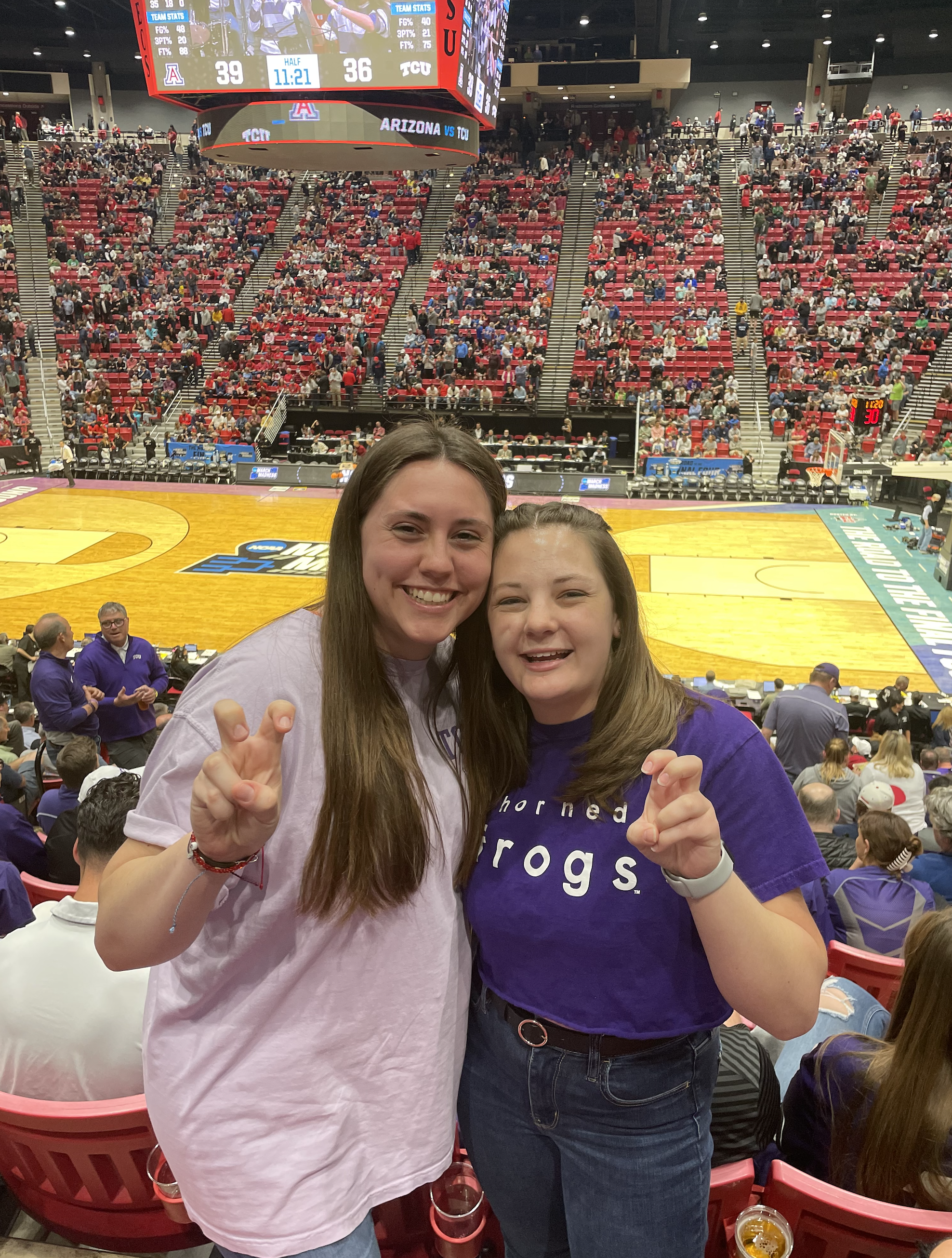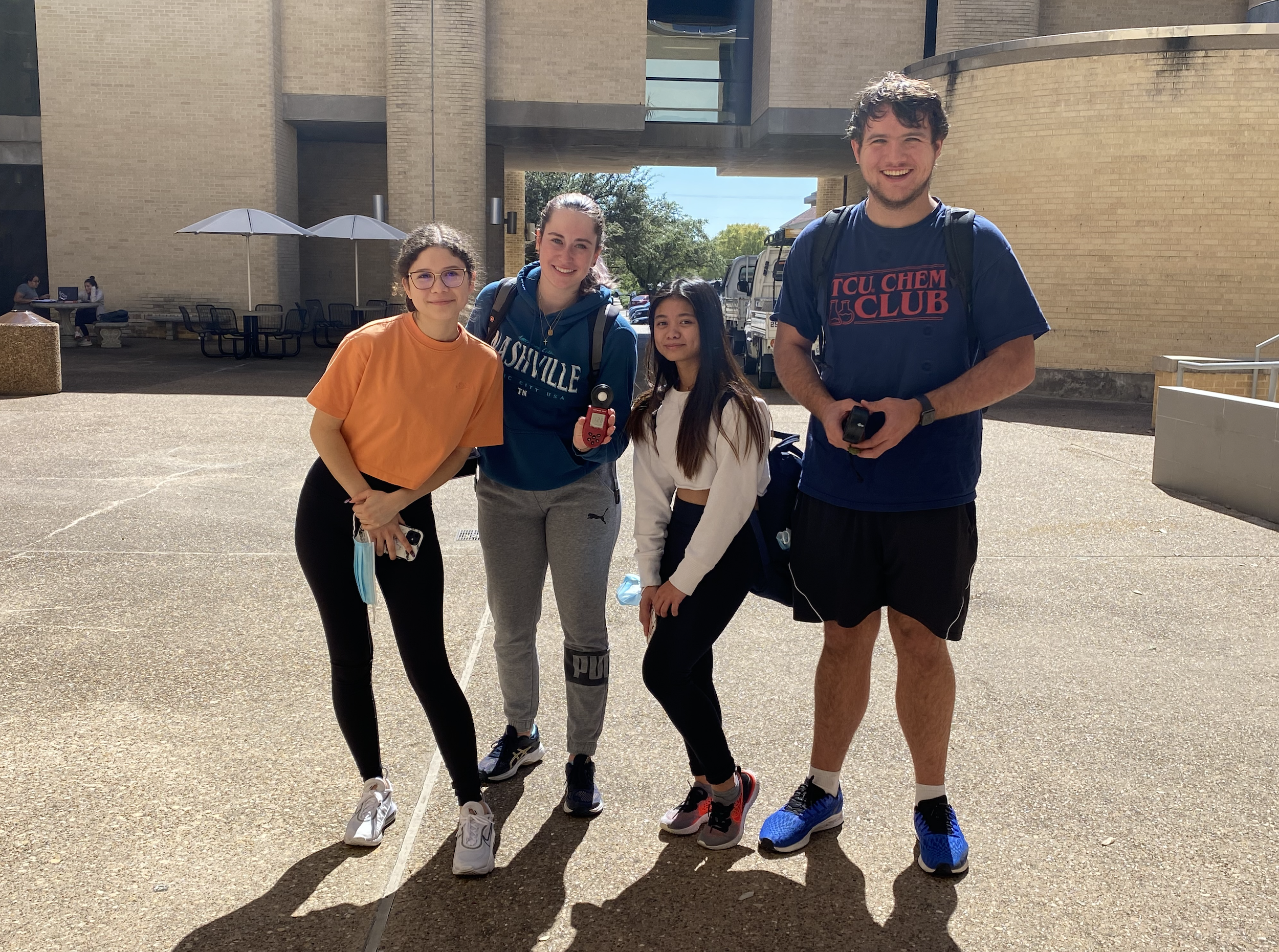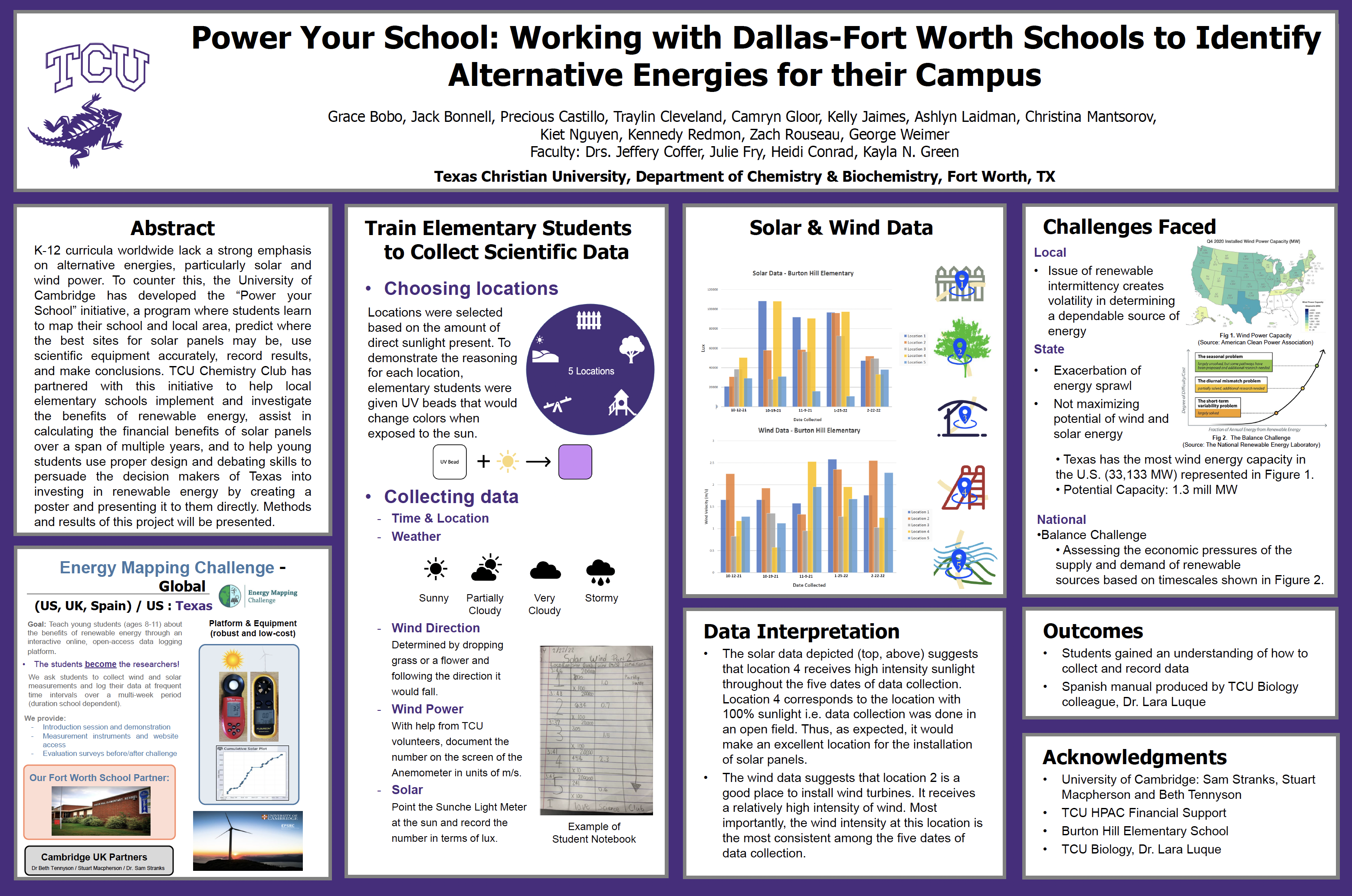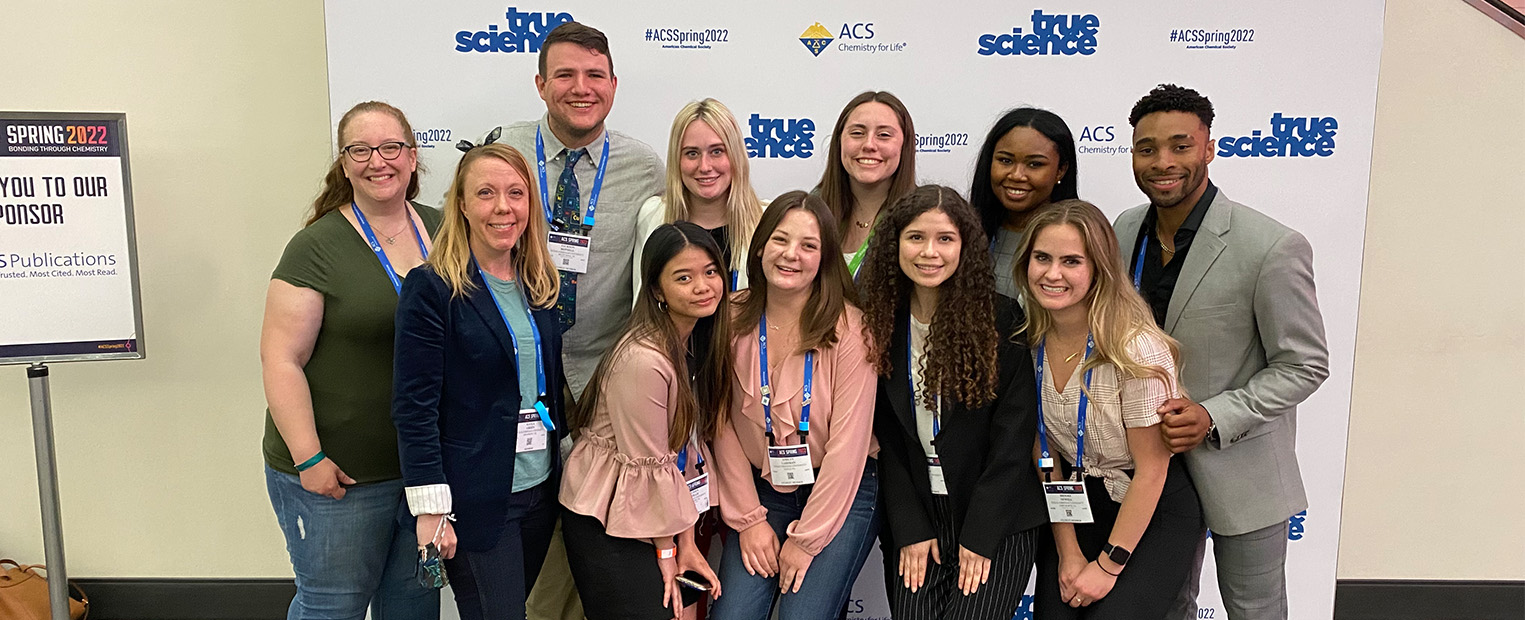Recognizing a lack of emphasis on alternative energies in K-12 curricula, the University of Cambridge developed the “Primary School Energy Mapping Challenge.” This program prepares students to map their school and local area to predict where the best sites for solar panels may be. Students are also trained to use scientific equipment accurately, record results, and make conclusions. TCU Chemistry Club has partnered with this initiative to help local elementary schools implement and investigate the benefits of renewable energy, assist in calculating the financial benefits of solar panels over a span of multiple years, and to help young students use proper design and debating skills to persuade the decision makers of Texas into investing in renewable energy.
Dr. Kayla Green, professor in the department of chemistry and biochemistry at TCU, says, “To our knowledge, we are the only university in the U.S. implementing this study. When our students presented their poster, ‘Power Your School: Working with Dallas-Fort Worth Schools to Identify Alternative Energies for Their Campus,’ at the National ACS meeting in March, faculty from other universities were suggesting we expand this and talk to Texas legislature about implementing this into curriculum.”
Chemistry Club students Christina Mantsorov and Jack Bonnell worked closely with Dr. Jeff Coffer, TCU chemistry professor, to get the program scaffolded to the University of Cambridge collaborators vision. These two students then worked with a team of Chemistry Club members that visited Burton Hill Elementary School weekly for their after-school science club and logged the measurements that the Burton Hill kids collected to find trends for sun and wind levels. Dr. Julie Fry, TCU chemistry instructor, is the Chemistry Club sponsor that has helped coordinate the interactions with Burton Hill. Dr. Laura Luque, TCU biology instructor, translated the materials from English to Spanish because for many of the students at Burton Hill, English is a second language.
Mantsorov says, “This project hoped to look at a different way to make a vital necessity (energy) more cost-effective and to ultimately be able to help more elementary schools in similar situations as Burton Hill begin more environmentally friendly traditions within their own communities. From student volunteers on site helping 3rd-5th graders learn about the wonders of chemistry to those helping make the poster itself and attending the American Chemical Society Spring 2022 National Conference in San Diego, more than 12 students in Chemistry Club were involved in creating our contribution to Cambridge’s initiative.”
An EPIC Grant from the Pre-Health Professions Institute helped fund the equipment that measured sunlight and wind speed for the project. The objective of EPIC Grants is to foster a culture of giving, strengthen communities, and provide students with opportunities to develop cultural humility, leadership, and teamwork skills. EPIC grants provide up to $1,500 to support a student-led project in which recipients will work with a team of other students and in close collaboration with representatives from TCU’s Office of Community Engagement, TCU mentor, and a community partner to complete their project.
“Several students say this project has been the highlight of their college careers so far. The team would not be complete without the help of our dedicated faculty sponsors who are always there for students when we need an extra set of hands or an additional opinion…This project overall showed us the benefits of what collaboration and determination to make the world a better place can do, and although we still have a long way to go, this is a monumental step for TCU and Fort Worth in the right direction when it comes to the challenge of renewable energy for all,” Mantsorov says.
Participating Students
Grace Bobo
Jack Bonnell
Precious Castillo
Traylin Cleveland
Camryn Gloor
Kelly Jaimes
Ashlyn Laidman
Christina Mantsorov
Kiet Nguyen
Porter Maggiore
Kennedy Redmon
Zach Rouseau
George Weimer
Participating Faculty
Drs. Jeffery Coffer, Julie Fry, Heidi Conrad, Kayla N. Green
Learn more about the University of Cambridge Primary School Energy Mapping Challenge and TCU Chemistry Club.

